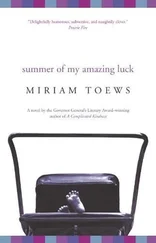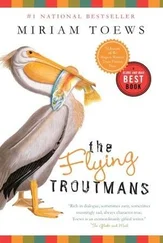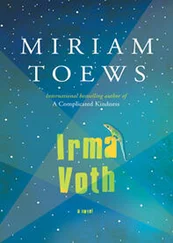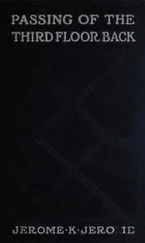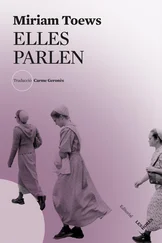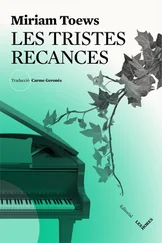I went back to my room and lay down on my bed. I stared at the old bloodstain that was near my pillow halfway up the wall and considered, like always, getting a cloth and wiping it off. It, the blood, had originally come from my face after I fell off my bike and landed in gravel.
I’d been careening home on my little bike with a giant box of Kotex pads for Tash who had, ten minutes earlier, hissed at me from inside the bathroom instructions to take the money from off Dad’s dresser and get the shit she needed before she filled the entire fuckin’ bowl. Those boxes were huge, the size of a small refrigerator, and I had this one balanced on my handlebars completely obliterating my view and I hit the curb with my front tire and skidded out of control and landed face-first in somebody’s pebbly driveway while Tash’s pads sailed off into the middle of the road and once again blood poured from my face.
When I got home, finally, after making separate trips each with the bike and the box, Tash said geez, I thought I’d spend the rest of my life stranded on the fuckin’ can and I went into my bedroom and lay on my bed picking out bits of gravel and congealed blood from my face and smearing them onto the wall above my pillow in a way that resembled the Mandarin language. If you look closely at my right cheek you can see a whole bunch of very tiny holes that look like an Aero bar. It bothered me in a kind of Charles Manson way to have a brown smear of blood on my wall but I also liked it because every time I looked at it I was reminded that I was, at that very moment, not bleeding from my face. And those are powerful words of hope, really.
Trudie had her kids and her husband and her books. She had a car and nightgowns and white lace curtains. She had friends. She had equanimity. Everything was good. She lived in a town where every single person knew who she was and where she came from and sometimes that made her crazy but most of the time she liked that because it made her feel like she was a part of something. She believed in God and heaven.
She talked about her dead father a lot, my grandpa. His name was Nicodemus. They’d been very close even though at times he couldn’t remember her name. Even when he was young and healthy he sometimes had problems remembering the names of his fourteen children. Half of them died when they were babies. We have his old, crumbling bible on a shelf in the den and inside it is a place to write about important events like births and deaths. Nicodemus did all the writing but you can see that there were times when my grandma would correct things for him. He’d thought that his son Peter’s first name was Walter but in fact it was Albert. Walter had been the name of an older child of theirs who had died. My grandma twice crossed out Walter and wrote in Albert, next to Peter, in the birth section and then again in the death section. In one place she had crossed out his Mina and written in Minty. She also corrected his Gorge and Hellen.
I think that my grandpa, Nicodemus, was my mother’s hero. She missed him. She missed sliding down the stairs in a cookie sheet and having him time her with his pocket watch. She missed watching him run around the yard on stilts and then knock on her second-storey window. He had taught her how to drive at the age of thirteen by sending her off alone in the car on a short business trip to Ontario. She loved to drive. Trudie and Ray were always going for drives, little piles of Wrigley’s Spearmint Gum wrappers sitting on the seat between them. Going to little towns near the border and having lunch or dessert, or just coffee.
In church, she was one of the loudest singers. She knew all the words to all the hymns and when she sang she reminded me of a bird or a political prisoner who had just been released from her cage. When I was really small I put my head in her lap. I could see individual hairs poking through her nylons. She rubbed my back. During Communion the women washed each other’s feet without removing their nylons. Oh, she said, they dry in a jiffy. She’d snap her fingers. The men however did remove their socks and I saw my fair share of podiatric horror.
After church she’d say let’s go in a crisp, very unambiguous way. You were supposed to walk down the aisle to the back and shake hands with The Mouth and various laymen but she’d usually grab me and my sister’s hands and take us out the front door, next to the organ. She’d say whew, it’s so hot in there. I needed air.
We’d sit in the car and wait for my dad because he always went down the aisle to shake hands, the way you were supposed to, and it took a very long time. Often, our car would be the last one to leave the parking lot.
While we waited for my dad to finish inside, my mom would stare straight ahead with a funny little smile on her face. Sometimes my dad would come out and say I think I’ll walk home and she would say oh, now you tell me. The girls and I have been sitting here waiting for you. All right then, my dad would say, we’ll drive. No, my mom would say, it makes no difference now. You may as well walk if you want to. Should I, my dad would ask. Oh my god, my sister would say. Do you want to, my mom would ask. I had planned to, my dad would say. Then do, she’d say. And so he would. He loved her ass off. That’s what I believe.
I may be a disappointment to Menno Simons but I would like him to know that I have carved, out of the raw material that he has provided, a new faith. I still believe that one day we’ll all be together, the four of us, in New York City. Lou Reed could live with us too. We would all sleep until noon, then play Frisbee in Central Park, then watch him play in clubs. We’d be his roadies. People would say hey, is that Lou Reed and his Mennonite family of roadies?
Trudie liked to talk about her childhood. Oh, I had the run of this place, she’d say, about the town. My mom’s family was one of the original ones to come here. My sister would laugh and say what place? This town is like a movie set. Nothing real is allowed to happen. It’s a ghost town. It’s Brigadoon.
My mom told her that we could have stayed in Russia and had our barns set on fire and our stomachs torn out. In war, she said, the oddballs are first on the chopping block.
Oh, is that an original thought? Tash would ask her.
I mean they left with next to nothing, my mom would say. Maybe a dozen buns. Or a few blankets. Most of them fled in the middle of the night. Okay, that’s a cliché—the middle of the night, Tash would say. People flee throughout the day as well.
A lot of the families were separated along the way, said my mom, or simply died and were left by the side of the road. There was no time to bury them. We’re lucky they let us come here.
My sister would say oh yeah, I feel so lucky. From Stalag 14 to Studio 54. My mom laughed at her when she said things like that and Tash would suck in her cheeks.
My grandma tried to get my mother to keep a cleaner house. Do you need motivation, she asked her. My mom said no, she didn’t need motivation because she didn’t care so fervently about a clean house. A clean house, my grandma said, is rather like a calling card. If the Rapture occurs while you’re out and the Lord God descends upon us and enters your home, he will know, by its cleanliness, that you are one of his sheep. And then what, asked my mom. And he will wait for you to return, said my grandma. And if my house is a mess, asked my mom. He’ll leave quietly, said my grandma. Oh, said my mom, I see. I never knew if she really did or if she only said she did, or if she was maintaining one of those infuriating airs of bemusement.
Our house stayed the same, in its level of disorder. My father would sigh, and escape into his world of isotopes and carbons. I learned that radioactive elements are by nature unstable and that they lose mass over time because of emissions from their nuclei.
Читать дальше

